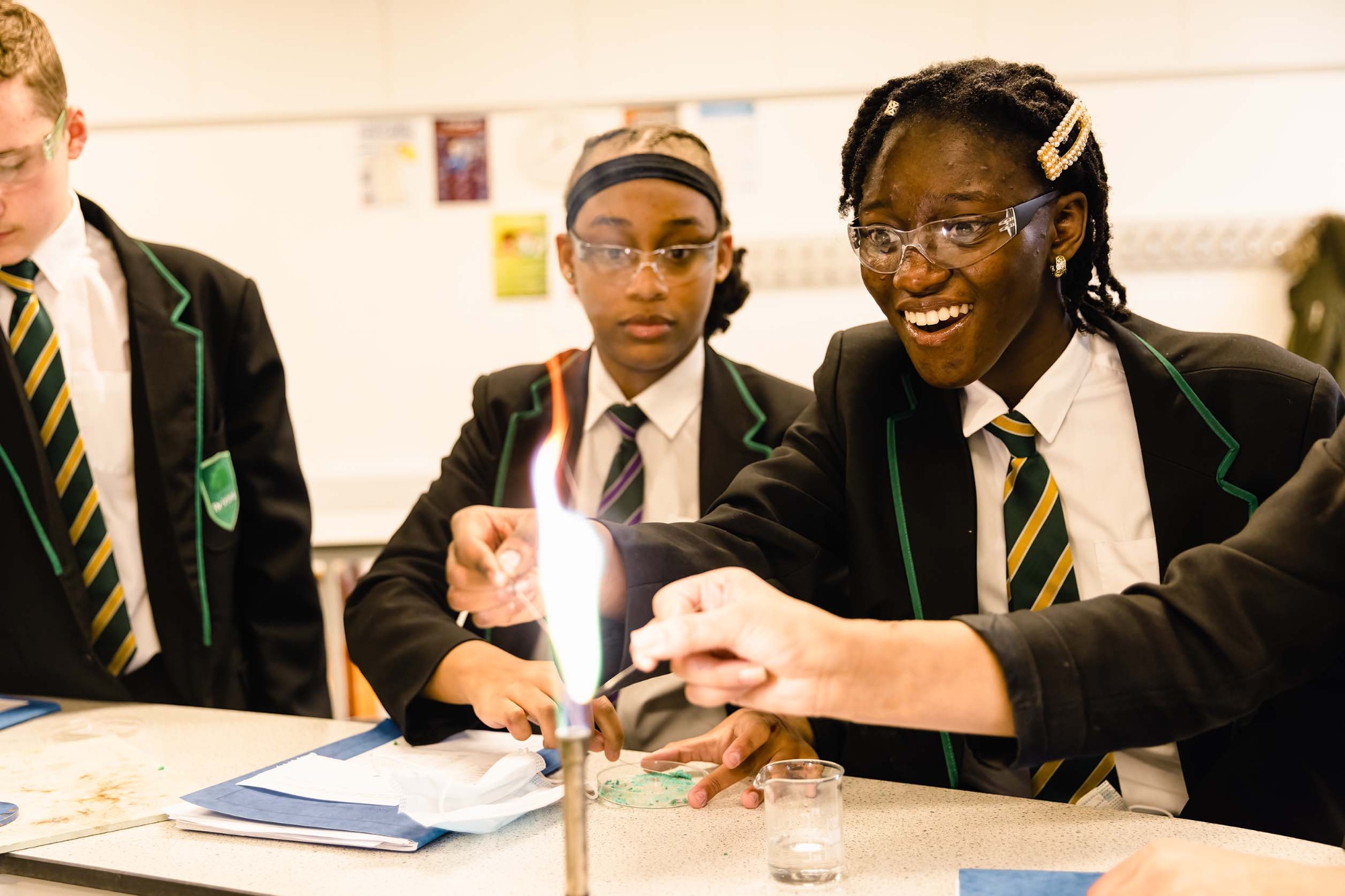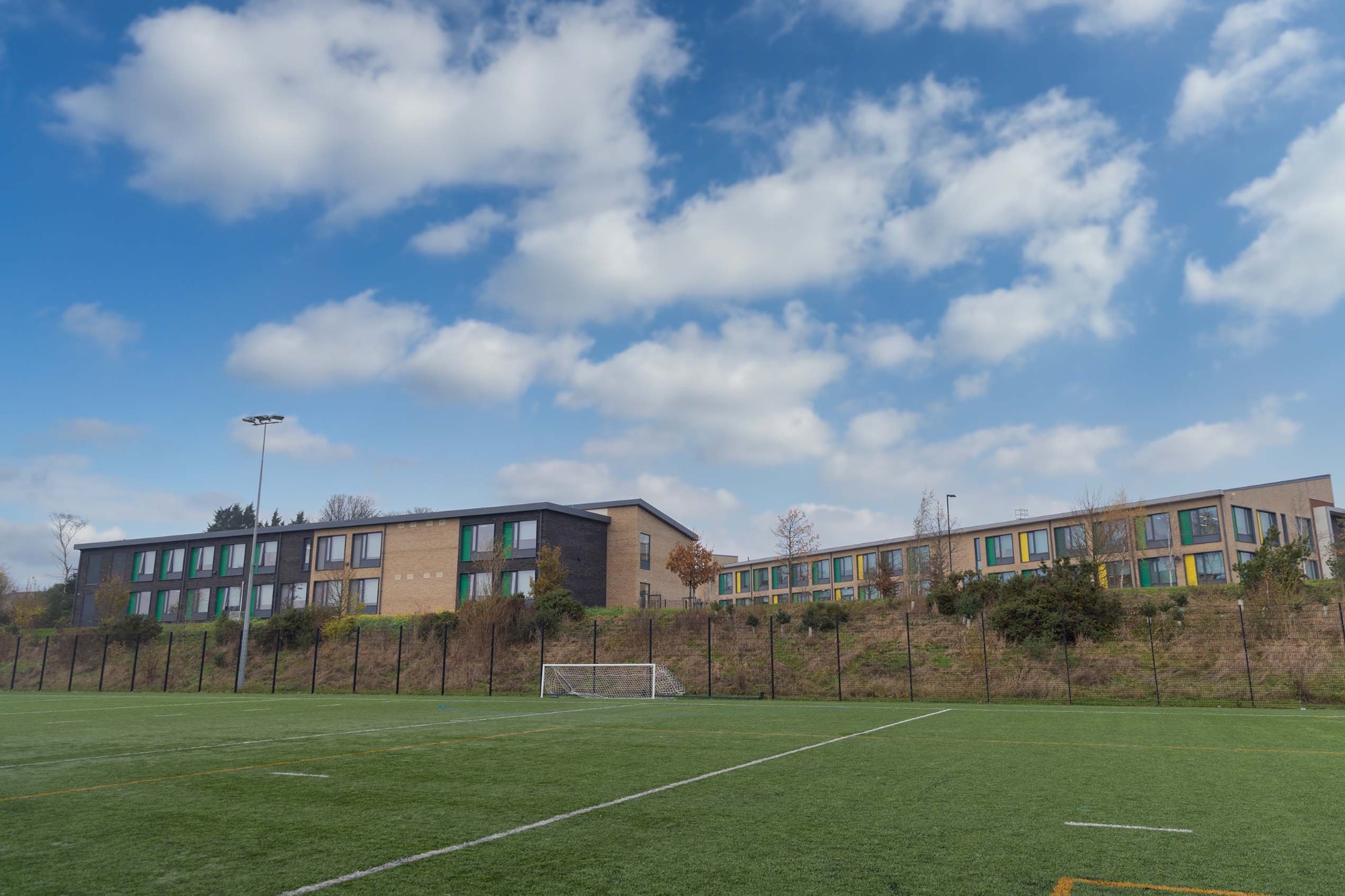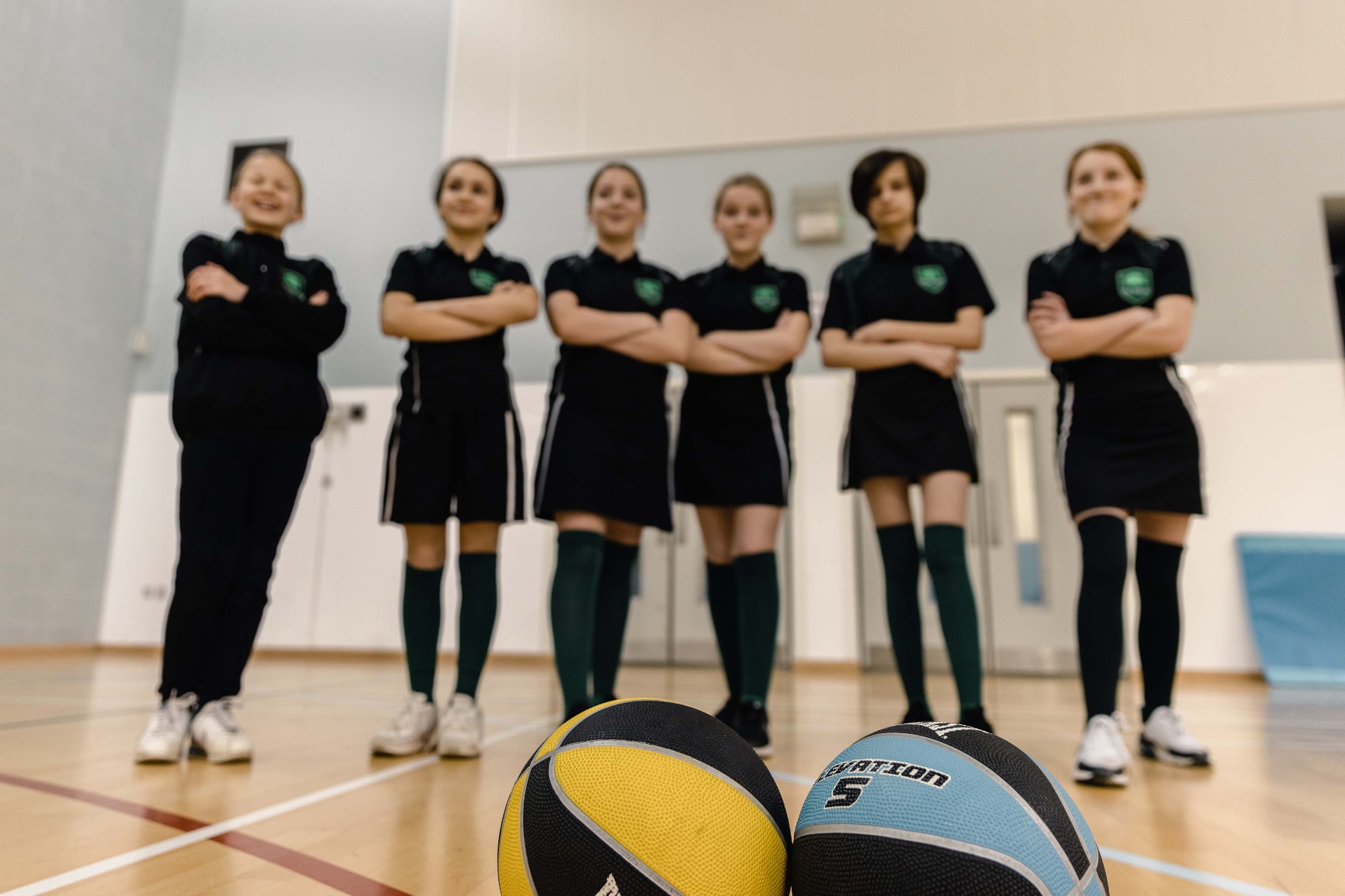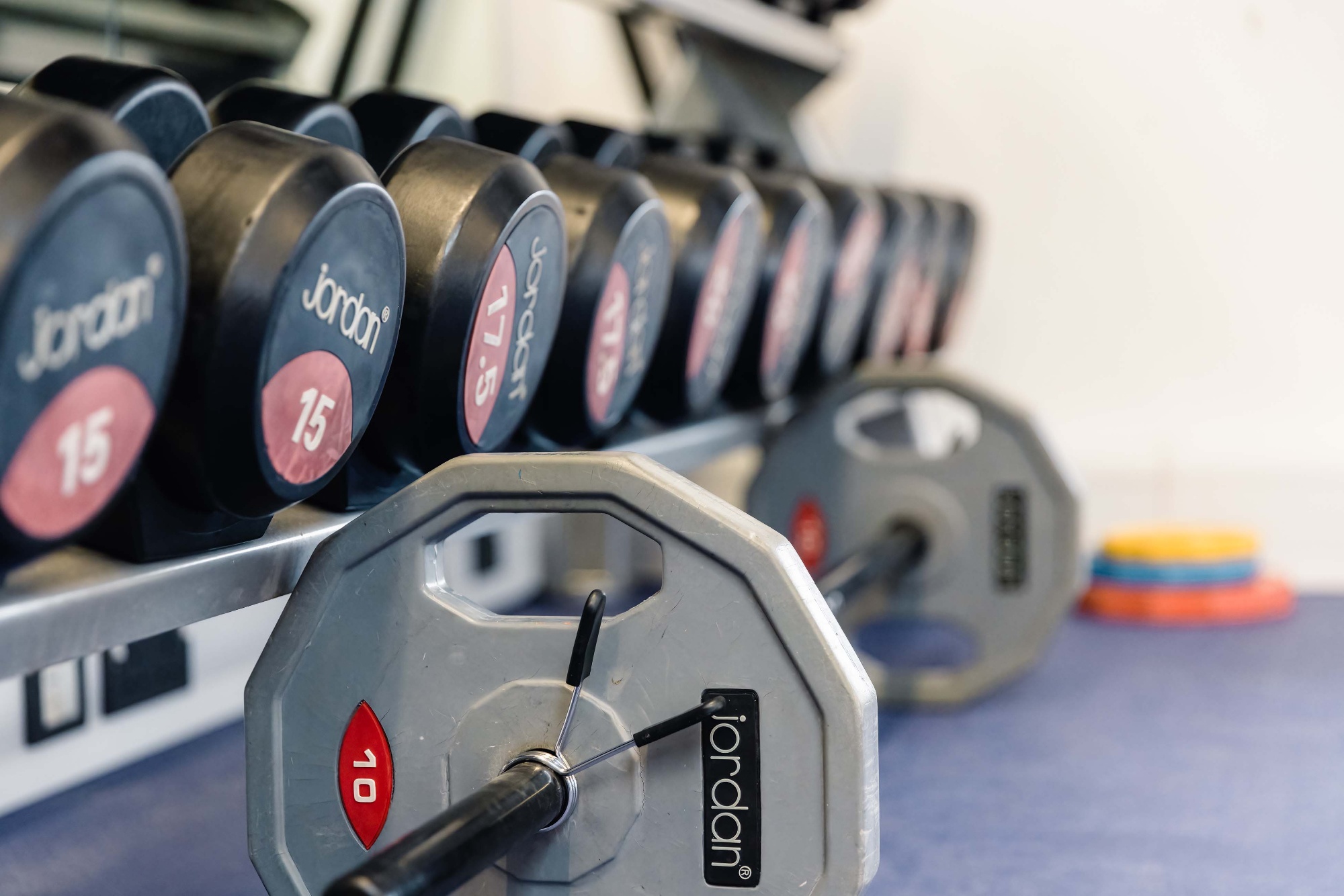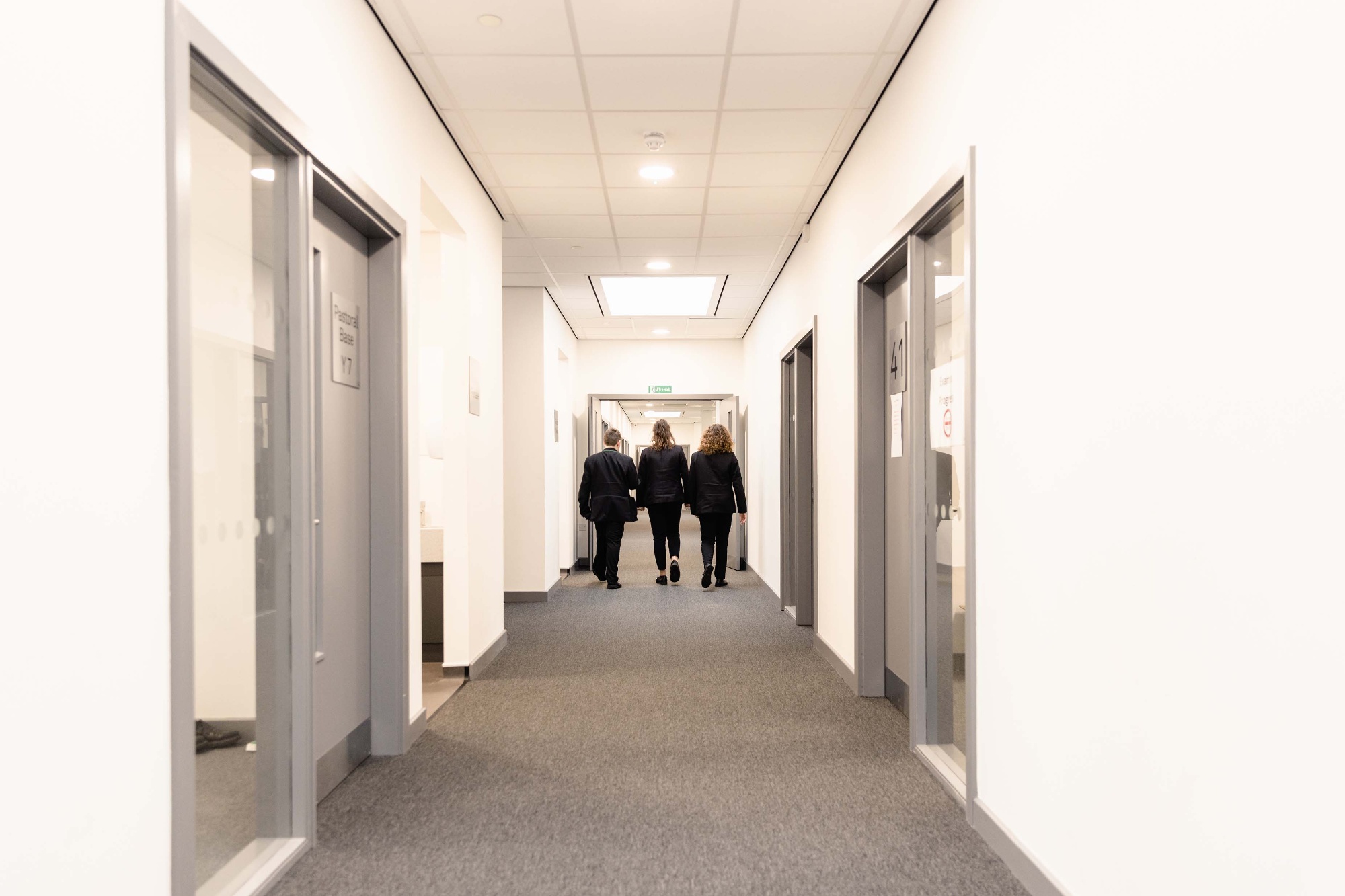.
Learning Journey Biology (combined Science)
Learning journey Chemistry (combined science)
learning journey physics (combined science)
learning journey biology (triple science)
learning journey chemistry (triple science)
learning journey physics (triple science)
Year 7
Autumn Term
Working Scientifically - Students get the opportunity to explore the expectations with science lessons. Looking into the safety aspects of science, how to carry out an investigation and putting their practical skills into action. The different skills learnt in this topic build the foundations for all science exploration.
Cells – pupils will learn about the structure of cells and the roles different cell parts play in their function. They will then expand into comparing specialised cells and their rolls within the body. From this, pupils will then develop the practical skills of using the microscope, making slides, and recording observations. All of this is the invaluable knowledge for future biology learning.
Foundations of Chemistry - pupils will learn about atoms, elements and compounds, the building blocks of all material. They will look at how different states of matter have different particle arrangements and how this influences their characteristics. Then moving onto more practical skills of separating methods dependent on particle size and solubility. Finally, they will compare the differences of acids and alkalis and investigate features of each. All of this is the invaluable knowledge for future chemistry learning.
Energy - pupils will learn about the different energy types, how they transfer from one form to another and the law of conservation of energy. They will then go on to develop maths skills, calculating energy, work, power, and efficiency. They will then investigate using practicals how thermal energy is transferred in the real world around us
Spring Term
Reproduction – pupils will build on their knowledge of the cells topic to look at how organisms reproduce and pass on their DNA. They will look at the specialised cells required for reproduction, the process of fertilisation, implantation and pregnancy, and foetal development up to birth. They will then investigate plant reproduction and the differences compared to animals. This will then form the foundations ready for learning about inheritance later in school.
Foundations of Chemistry - pupils will learn about atoms, elements and compounds, the building blocks of all material. They will look at how different states of matter have different particle arrangements and how this influences their characteristics. Then moving onto more practical skills of separating methods dependent on particle size and solubility. Finally, they will compare the differences of acids and alkalis and investigate features of each. All of this is the invaluable knowledge for future chemistry learning.
Periodic Table – pupils will build on their knowledge from foundations of chemistry and the structure of atoms and elements. They will study the periodic table of elements, looking at how the different elements are arranged based on their properties and atomic structure, the differences between the different groups within the table, and how the development of the table has progressed over time due to more discoveries in science
Energy - pupils will learn about the different energy types, how they transfer from one form to another and the law of conservation of energy. They will then go on to develop maths skills, calculating energy, work, power, and efficiency. They will then investigate using practicals how thermal energy is transferred in the real world around us
Forces – pupils will investigate the different force’s objects experience and the effects these forces have. They will investigate gravity and its effect on objects (both on earth and on the moon/other planets), the resultant forces objects have, and the differences between contact and non-contact forces.
Summer Term
Ecology – pupils will investigate the relationships between living and non-living factors on earth. They will identify the roles organisms and abiotic features play within ecosystems. Organism feeding relationships will be investigated, identifying the movement of energy through these relationships. They will then identify the impact of humans on ecosystems, both positively and negatively, and the changes we can make to improve ecosystems and biodiversity.
Metals – pupils will learn about different materials and their structures. They will link properties to functions of materials and the different reactivity of materials – making links to their positions in the periodic table
Forces – pupils will investigate the different force’s objects experience and the effects these forces have. They will investigate gravity and its effect on objects (both on earth and on the moon/other planets), the resultant forces objects have, and the differences between contact and non-contact forces.
Space – pupils will learn about our universe and where our planet fits into the wider solar system. They will learn about features of the earth and how its orbit affects seasons, day and night and the lunar cycle.
Year 8
Autumn Term
Organisation – pupils will be learning a bit the structure of the body. They will identify the different organs and their independent roles, along with how they work with other organs in systems to ensure the body functions properly. They will also look at how substances move around plants and animals.
Metals – pupils will learn about different materials and their structures. They will link properties to functions of materials and the different reactivity of materials – making links to their positions in the periodic table
Rock cycle – pupils will learn about the planet we live on and its structure underneath its surface. They will look at how different rocks are formed and the conditions they require to form specific properties.
Atmosphere –pupils will lean about the atmosphere of the planet we live on and the reasons why it is suitable for supporting life on earth. They will look at gas exchange and the impact the human population has on the quality of air – looking at the way we can more positively affect our environment
Space – pupils will learn about our universe and where our planet fits into the wider solar system. They will learn about features of the earth and how its orbit affects seasons, day and night and the lunar cycle.
Electricity part 1 – pupils will learn about the features of electricity, how we manage to get power to our appliances and the features of its flow they will use real life examples and skills to learn about appliances and wiring plugs
Spring Term
Organisation – pupils will be learning a bit the structure of the body. They will identify the different organs and their independent roles, along with how they work with other organs in systems to ensure the body functions properly. They will also look at how substances move around plants and animals.
Bioenergetics – pupils will build on their knowledge of organisation to look at specific chemical reactions in plants and animals. They will look at the reactants needed for photosynthesis and respiration, then the products released along with energy. They will then investigate real life examples as to the effects of exercise on the body and how respiration is affected.
Atmosphere –pupils will lean about the atmosphere of the planet we live on and the reasons why it is suitable for supporting life on earth. They will look at gas exchange and the impact the human population has on the quality of air – looking at the way we can more positively affect our environment
Bonding – pupils will build on their knowledge of the periodic table to understand the chemical bonds between different elements. All materials are made of atoms that are held together so they will learn about the 3 different bond types along with the properties and characteristics that each of the bonds have. They will then analyse different materials based on their structure and bonds, linking them to real world uses.
Electricity part 1 – pupils will learn about the features of electricity, how we manage to get power to our appliances and the features of its flow they will use real life examples and skills to learn about appliances and wiring plugs
Waves – pupils will build on prior knowledge of the energy topic. They will investigate how energy is transferred through different types of waves and compare the similarities and differences between the 2 category types of waves. They will then investigate features of light waves and sound waves.
Summer Term
Bioenergetics – pupils will build on their knowledge of organisation to look at specific chemical reactions in plants and animals. They will look at the reactants needed for photosynthesis and respiration, then the products released along with energy. They will then investigate real life examples as to the effects of exercise on the body and how respiration is affected.
Bonding – pupils will build on their knowledge of the periodic table to understand the chemical bonds between different elements. All materials are made of atoms that are held together so they will learn about the 3 different bond types along with the properties and characteristics that each of the bonds have. They will then analyse different materials based on their structure and bonds, linking them to real world uses.
EM Spectrum – pupils will build on their waves knowledge to learn about the electromagnetic spectrum. They will identify the different sections of the spectrum along with properties, features, and their uses. They will then link this to real life examples and uses to see how we use and interact with them every day.
Year 9
Autumn Term
Infection and response – pupils will be building on prior knowledge of cells and bodily systems in order to understand how plants and animals defend against disease. They will gain a knowledge of how different pathogens invade the body to spread diseases, as well as the different methods we are adapted to defend against these pathogens. Then research into the medical side of diseases, illnesses and medication is completed to gain an insight into real world examples.
Bonding – pupils will build on their knowledge of the periodic table to understand the chemical bonds between different elements. All materials are made of atoms that are held together so they will learn about the 3 different bond types along with the properties and characteristics that each of the bonds have. They will then analyse different materials based on their structure and bonds, linking them to real world uses.
Electricity part 1 – pupils will learn about the features of electricity, how we manage to get power to our appliances and the features of its flow they will use real life examples and skills to learn about appliances and wiring plugs
Electricity part 2 – pupils will build on their previous knowledge of electricity, energy and power to work out factors that affect electricity and the implications of changing these on the current, potential difference and resistance. Pupils will then use a range of equations to calculate these.
Spring Term
Infection and response – pupils will be building on prior knowledge of cells and bodily systems in order to understand how plants and animals defend against disease. They will gain a knowledge of how different pathogens invade the body to spread diseases, as well as the different methods we are adapted to defend against these pathogens. Then research into the medical side of diseases, illnesses and medication is completed to gain an insight into real world examples.
Homeostasis – pupils will build on their knowledge of body organisation and function to learn how the body maintains a balanced and constant internal environment. They will look at body temperature, blood sugar levels and hormones. They will expand into the menstrual cycle, contraception, and fertility (including treatments). Triple pupils will progress look at plants and their hormones, completing practicals to investigate. They will then look at how the body maintains water levels, how the brain coordinates responses and how the eye allows us to see (including how we can correct our vision using glasses and lenses)
Bonding – pupils will build on their knowledge of the periodic table to understand the chemical bonds between different elements. All materials are made of atoms that are held together so they will learn about the 3 different bond types along with the properties and characteristics that each of the bonds have. They will then analyse different materials based on their structure and bonds, linking them to real world uses.
Rates of reaction – pupils will build on their knowledge of elements, mixtures and compounds to look at reactions in chemicals. They will investigate how different factors influence the speed of reactions and how we can use these in real world examples. They will use transferable maths skills to interpret and use data.
Motion – pupils will develop an understanding of calculating speed, distance, and time. They will interpret data from raw information and graphs to complete calculations and describe journeys from the information. They will then develop this to look at velocity and acceleration, along with calculations from data, and finally discussing terminal velocity and providing real life examples of its occurrence
Summer Term
Homeostasis – pupils will build on their knowledge of body organisation and function to learn how the body maintains a balanced and constant internal environment. They will look at body temperature, blood sugar levels and hormones. They will expand into the menstrual cycle, contraception, and fertility (including treatments). Triple pupils will progress look at plants and their hormones, completing practicals to investigate. They will then look at how the body maintains water levels, how the brain coordinates responses and how the eye allows us to see (including how we can correct our vision using glasses and lenses)
Rates of reaction – pupils will build on their knowledge of elements, mixtures, and compounds to look at reactions in chemicals. They will investigate how different factors influence the speed of reactions and how we can use these in real world examples. They will use transferable maths skills to interpret and use data.
Using resources – pupils will develop their knowledge of materials and the earth, looking at the impact of extracting the earth’s natural resources, and creating synthetic ones and their impact on the earth, weighing up the pros and cons for different items.
Atomic structure and radiation – pupils will build on their chemistry knowledge and transfer their skills into physics, looking at the structure of atoms, their electron structure and how the atom structure developed over time. They will look at the 3 different types of radiations, their configurations, properties and uses. They will calculate the changes during radioactive decay and the impact of this.
Year 10 Science (triple and Combined)
Year 10 Curriculum – Science
Statement for triple – Pupils in both triple and combined science follow the same curriculum map regarding topic order and content. The triple students however will have additional triple science content incorporated within the topics where they build on the combined content. There is then a couple of stand-alone triple science topics in chemistry and physics that are taught at the end of Y10/start of Y11.
Autumn Term
Inheritance – pupils will build on their knowledge or cells and the organelles within to develop an understanding of DNA and how characteristics are expressed and passed on through reproductions. They will learn how different DNA sequences allow for variation in organisms and how genetic diseases can be passed on.
Variation and evolution – pupils will develop their knowledge of inheritance, of the earth structure and of mutations in DNA to look at how animals have developed over many years. They will compare past and current organisms to see similarities and differences, whilst using Darwin’s theory of evolution to explain these genetic outcomes.
Organic chemistry – pupils will develop their knowledge of the periodic table and bonding, to look at a range of substances made from hydrogen and carbon, naturally occurring hydrocarbons. They will investigate the characteristics and properties of different length alkanes and identify their uses. They will then move on to discussing human intervention for accessing specific alkanes and the methods used to do so. Triple pupils will then expand into comparing alkanes to alkenes, and investigating functional groups linked with hydrocarbons, their properties and uses also. They will then go on to look at the different methods of polymerisation, as well as naturally occurring DNA polymers.
Using resources – pupils will develop their knowledge of materials and the earth, looking at the impact of extracting the earth’s natural resources, and creating synthetic ones and their impact on the earth, weighing up the pros and cons for different items.
Atomic structure and radiation – pupils will build on their chemistry knowledge and transfer their skills into physics, looking at the structure of atoms, their electron structure and how the atom structure developed over time. They will look at the 3 different types of radiations, their configurations, properties and uses. They will calculate the changes during radioactive decay and the impact of this. Triple students will then go on to look at nuclear fission and fusion; looking at how they occur, what happens and what sub-atomic particles are emitted to release energy.
Spring Term
Inheritance – pupils will build on their knowledge or cells and the organelles within to develop an understanding of DNA and how characteristics are expressed and passed on through reproductions. They will learn how different DNA sequences allow for variation in organisms and how genetic diseases can be passed on.
Variation and evolution – pupils will develop their knowledge of inheritance, of the earth structure and of mutations in DNA to look at how animals have developed over many years. They will compare past and current organisms to see similarities and differences, whilst using Darwin’s theory of evolution to explain these genetic outcomes.
Quantitative – pupils will build on their knowledge of the periodic table to work out a range of calculations in chemical reactions. They will work out mass changes, yield and mols, using data from equations, periodic table, and graphs to support their work. Triple pupils will then go on to look at atom economy and calculating concentrations of different substances in reactions and specific gas volumes.
Atomic structure and radiation – pupils will build on their chemistry knowledge and transfer their skills into physics, looking at the structure of atoms, their electron structure and how the atom structure developed over time. They will look at the 3 different types of radiations, their configurations, properties and uses. They will calculate the changes during radioactive decay and the impact of this. Triple students will then go on to look at nuclear fission and fusion; looking at how they occur, what happens and what sub-atomic particles are emitted to release energy.
Particle model – pupils will build on their knowledge of states of matter and particle diagrams to understand density of different substances relating to their particles, working out density of regular solids, irregular solids, and liquids. They will then investigate changes of state in more detail, along with the energy changes involved to change state, objects heat capacity and the effects of pressure changes. Triple pupils will investigate pressure in even more detail, looking into pressure changes in liquids and gases.
Summer Term
Variation and evolution – pupils will develop their knowledge of inheritance, of the earth structure and of mutations in DNA to look at how animals have developed over many years. They will compare past and current organisms to see similarities and differences, whilst using Darwin’s theory of evolution to explain these genetic outcomes.
Making salts – pupils will build on their knowledge of acids and alkalis, the periodic table and chemical reactions to explain displacement, how salts are made, and the different reactants needed to form salts. All will use specific techniques in required practicals to synthesise salts. Triple pupils will use specific equipment in required practicals to carry out titrations.
Particle model – pupils will build on their knowledge of states of matter and particle diagrams to understand density of different substances relating to their particles, working out density of regular solids, irregular solids, and liquids. They will then investigate changes of state in more detail, along with the energy changes involved to change state, objects heat capacity and the effects of pressure changes. Triple pupils will investigate pressure in even more detail, looking into pressure changes in liquids and gases.
Magnetism/electromagnetism – pupils will develop their real-world knowledge of magnets to investigate the science behind the way they work. They will then investigate electromagnets; their features and their uses. They will then investigate the motor effect and generator effect, alternators, and dynamos; along with their real world uses. Triple pupils will then investigate the real-world uses of transformers and how they transform electricity for domestic use.
year 11 science (triple and Combined)
Statement for triple – Pupils in both triple and combined science follow the same curriculum map regarding topic order and content. The triple students however will have additional triple science content incorporated within the topics where they build on the combined content. There is then a couple of stand-alone triple science topics in chemistry and physics that are taught at the end of Y10/start of Y11.
Autumn term
Inheritance – pupils will build on their knowledge or cells and the organelles within to develop an understanding of DNA and how characteristics are expressed and passed on through reproductions. They will learn how different DNA sequences allow for variation in organisms and how genetic diseases can be passed on.
Variation and evolution – pupils will develop their knowledge of inheritance, of the earth structure and of mutations in DNA to look at how animals have developed over many years. They will compare past and current organisms to see similarities and differences, whilst using Darwin’s theory of evolution to explain these genetic outcomes.
Using resources – pupils will develop their knowledge of materials and the earth, looking at the impact of extracting the earth’s natural resources, and creating synthetic ones and their impact on the earth, weighing up the pros and cons for different items.
Organic chemistry – pupils will develop their knowledge of the periodic table and bonding, to look at a range of substances made from hydrogen and carbon, naturally occurring hydrocarbons. They will investigate the characteristics and properties of different length alkanes and identify their uses. They will then move on to discussing human intervention for accessing specific alkanes and the methods used to do so. Triple pupils will then expand into comparing alkanes to alkenes, and investigating functional groups linked with hydrocarbons, their properties and uses also. They will then go on to look at the different methods of polymerisation, as well as naturally occurring DNA polymers.
Making salts – pupils will build on their knowledge of acids and alkalis, the periodic table, and chemical reactions to explain displacement, how salts are made, and the different reactants needed to form salts. All will use specific techniques in required practicals to synthesise salts. Triple pupils will use specific equipment in required practicals to carry out titrations.
Electrolysis – Pupils will develop their knowledge of ions, ionic bonding, and properties of ionic compounds. They will look at how we extract metals using electrochemical techniques with specific examples. Triple will look at cells and batteries and how rechargeable batteries work. They will also move onto how hydrogen fuel cells work and the benefits of using them.
Vehicle safety – pupils will be building on their knowledge of forces to understand cars and vehicles performance. They will investigate the factors that affect stopping distances, newtons laws and their effects, and momentum of objects. Triple pupils will investigate momentum even further and how momentum can be conserved.
Spring term
Energy changes –Pupils will develop their knowledge of chemical reactions by introducing endothermic and exothermic with specific examples. They will complete a required practical investigating temperature change in reactions. Pupils will be required calculate how much energy is required to break and make bonds in reactions. They will look at how some reactions are reversible and how we can alter conditions that favour the amount of product formed. Triple will go onto learn about the production of ammonia in the Haber process.
Chem analysis (triple only) –Pupils will build on their knowledge of mixtures by looking at what makes substances pure and how substances are put together to form a desired product. They will investigate how we separate mixtures by chromatography in a required practical and how we can identify specific gases by tests. Triple will further investigate how we identify unknown substances by specific techniques and how instrumental techniques can provide further accuracy when identifying substances.
Space (triple only) - pupils will build on the key stage 3 space topic to investigate the life cycle of stars, how earth fits into the wider solar system, they doppler effect and red shift. They will also research nuclear fission and fusion as a way of sourcing energy, starting with the burning of the sun.
Biology revision - Pupils will have ample time to recap and revise the curriculum, to ensure security in their subject ready for their GCSE examinations. They will develop and enhance their exam skills, strengthen their retrieval, and build their own confidence in their science ability.
Chemistry revision - Pupils will have ample time to recap and revise the curriculum, to ensure security in their subject ready for their GCSE examinations. They will develop and enhance their exam skills, strengthen their retrieval, and build their own confidence in their science ability.
Physics revision - Pupils will have ample time to recap and revise the curriculum, to ensure security in their subject ready for their GCSE examinations. They will develop and enhance their exam skills, strengthen their retrieval, and build their own confidence in their science ability.
Summer Term
Biology revision - Pupils will have ample time to recap and revise the curriculum, to ensure security in their subject ready for their GCSE examinations. They will develop and enhance their exam skills, strengthen their retrieval, and build their own confidence in their science ability.
Chemistry revision - Pupils will have ample time to recap and revise the curriculum, to ensure security in their subject ready for their GCSE examinations. They will develop and enhance their exam skills, strengthen their retrieval, and build their own confidence in their science ability.
Physics revision - Pupils will have ample time to recap and revise the curriculum, to ensure security in their subject ready for their GCSE examinations. They will develop and enhance their exam skills, strengthen their retrieval, and build their own confidence in their science ability.
KS3 Extra-curricular Activities
Pupils have access to a weekly science club every Tuesday to explore a range of different science investigations and projects. A range of different revision resources have been added to teams for pupils to access at their own independence to help support consolidation, revision and recapping different topic areas. There is also a range of resources provided in school in the revision cupboard in science for free access. Teachers can also provide additional work such as exampro exam questions, educake quizzes and varied materials that may support individuals.
Educake login page Educake - Online Formative Assessment for Homework and Classwork
KS4 Extra-curricular Activities
Pupils have access to weekly intervention sessions within science to help strengthen and secure their subject knowledge. A range of different revision resources have been added to teams for pupils to access at their own independence to help support consolidation, revision and recapping different topic areas. These is also a range of resources provided in school in the revision cupboard in science for free access. Teachers can also provide additional work such as exampro exam questions, educake quizzes and varied materials that may support individuals. There is also a revision guide available for pupils to purchase (pay using parent pay – pupils have been allocated on there. Take a screenshot to show/email Ms Rutherford, then she will get your book for you)
S Rutherford, Director of Science

